

Please rotate your device to landscape
Generation AI 2018
For IEEE’s second annual study of Millennial parents, we focused on how healthcare-related artificial intelligence (AI) technologies will impact the lives of their Generation Alpha children, ages eight and younger. From health tracker-wearing infants to eradicating cancer, here’s how Millennial parents around the world see AI impacting their kids, the most tech-infused generation yet.
Generation Alpha Trend Watch: Babies Wearing AI Health Trackers

Future wearables stand to track health far more holistically using AI. More than half of Millennial parents would have their young children wear them, including infants, toddlers and up to five-year-olds. However, these parents also said they would be most comfortable with their children wearing the devices starting in their teens.

Five years from now, wearables will be an inevitable part of our lives, with the ability to monitor health conditions and predict the cause of any disease.
Sukanya Mandal
IEEE member and data science professional (India)
“Besides steps and heart rate, there are wearables that capture data about blood pressure, blood oxygen, calorie count, sleep tracking, etc. Five years from now, wearables will be an inevitable part of our lives, with the ability to monitor health conditions and predict the cause of diseases based on the symptoms; suggest diets for proper lifestyle management; measure stress and raise alerts; monitor air quality and humidity in our homes and adjust the temperature based on our body temperatures, thus improving the quality of our lives.”
Read More About Health Wearables:
Kids Not Feeling Well? AI Will Know Why, and How to Fix it
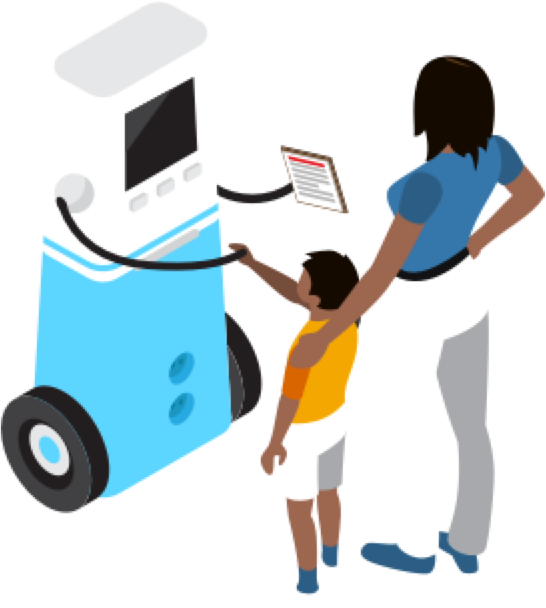
Trusting AI-generated diagnoses isn’t a strange concept for Millennial parents. Far from it. More than half of our global respondents say they would have “a great deal of” trust in AI diagnoses and treatments for their sick child.

Healthcare providers will be able to analyze patient data to predict the root cause, delivering results faster than traditional methods.
Kevin Curran
IEEE Senior member and Professor of Cybersecurity at Ulster University (U.K.)
“Artificial intelligence can power fantastic analysis of symptoms and global trends. Healthcare providers will be able to analyze patient data to predict the root cause, delivering results faster than traditional methods. AI will also be used to search for outliers, and hybrid detection systems will combine to improve the detection rate of diseases and reduce the false-alarm rate. Behavioral AI analytics techniques may also contribute, as it can assist in isolating symptoms that do not conform to expected behaviors.”
Speak up: The Chatbot Doctor is In, and Ready to Talk
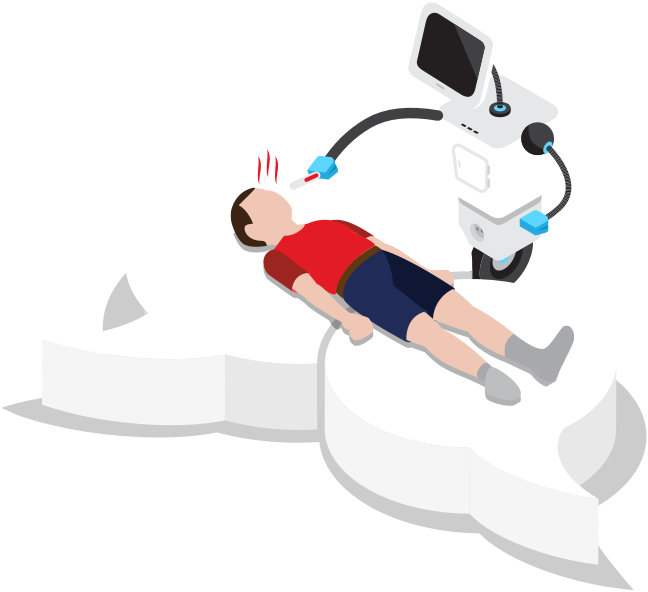
Equipped with disease databases, patient history and symptoms, AI-powered chatbots could diagnose sick Generation Alpha children. But Millennial parents from Asia feel far more comfortable with the idea of using them than those from the U.S. and U.K. do.

Many people like to talk, and if we can talk with something, we often open up and provide more information versus other types of interfaces.
Tom Coughlin
IEEE Fellow and President at Coughlin Associates (U.S.)
“Many people like to talk, and if we can talk with something, we often open up and provide more information versus other types of interfaces. For this reason, I think that chatbots powered by machine learning could be very effective in evaluating the health of many people.”
Smile for Your Biometric Pediatrician
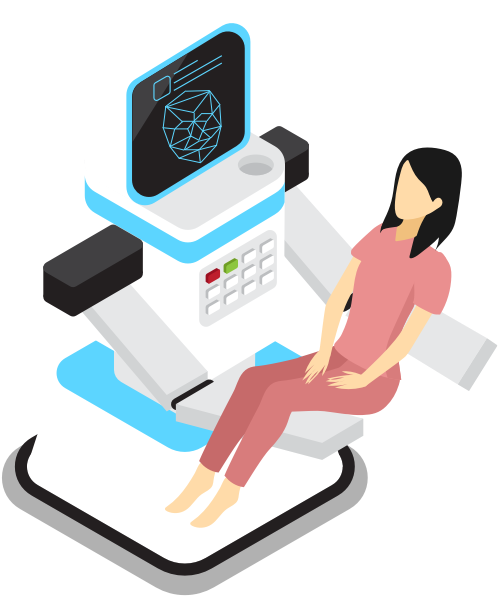
Facial recognition and machine learning are increasingly able to spot rare health issues in photos. Most Millennial parents globally, except those in the U.K., would be comfortable using this technology to seek health answers for their kids.

Biometrics, of which facial recognition is a subset, is a growing technology and could become more popular in identifying medical symptoms.
Kevin Curran
IEEE Senior member and Professor of Cybersecurity at Ulster University (U.K.)
“Biometrics, of which facial recognition is a subset, is a growing technology and could become more popular in identifying medical symptoms. AI can replicate some specific elements of intellectual ability. First, the machine learning algorithm gathers facts about a situation through inputs, then compares this information to stored data and decides what the information signifies. The computer runs through various possible actions and predicts which action will be most successful based on the collected information. This could especially be applied in the domain of spotting skin cancers.”
Robot Surgeons Get a Thumbs up to Operate on Millennials’ Children
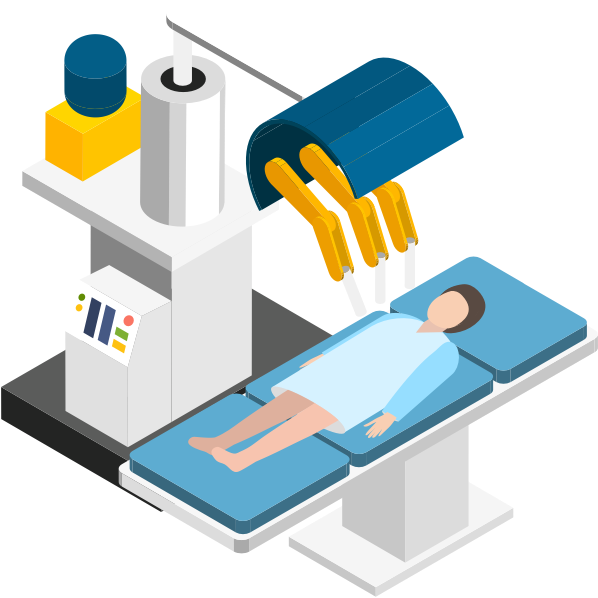
Millennial parents -- particularly in Asia -- would embrace the opportunity to have innovative, precise, AI-powered robots operate on their children if needed. Those in the U.S. and U.K. aren’t as likely.

The next logical step is to use AI to see and operate with absolute precision incapable by a human.
Karen Panetta
IEEE Fellow and Dean of Graduate Engineering, Tufts University (U.S.)
“There are currently FDA-approved robots in the operating room, especially for knee surgery. The next logical step is to use AI to see and operate with absolute precision incapable by a human. For instance, when removing burnt/necrosis tissue, AI will be able to better detect the tissue to be removed, leaving the good tissue intact. This is difficult to do by ‘eyeing’ it with human eyes. All this sounds amazing and it is, but we need to caution that the human should always be in the loop and supervising.”
In Life or Death Decisions for Their Kids, Millennials Trust Doctors Relying on AI
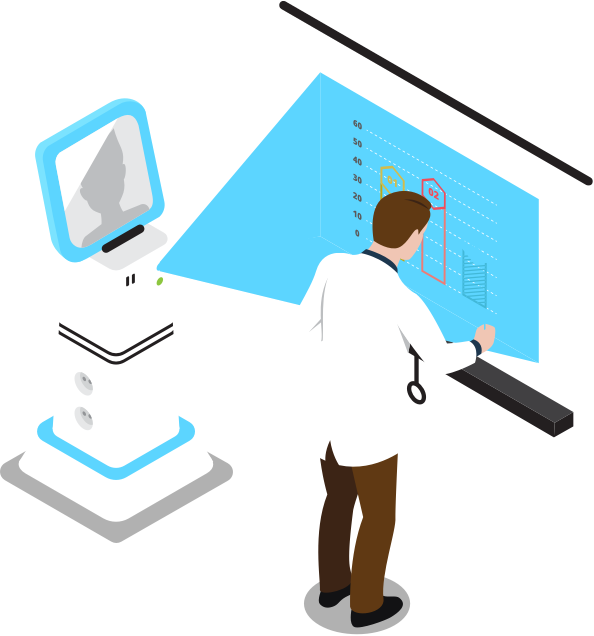
When asked if they would trust doctors using data from artificial intelligence to make life or death health decisions regarding their Generation Alpha children, Millennial parents around the world are on board.

More than likely, future medical professionals will rely more on AI rather than the comparatively small pool of patients they have served.
Karen Panetta
IEEE Fellow and Dean of Graduate Engineering, Tufts University (U.S.)
“When seeking treatments, we often look for a ‘second opinion.’ With AI, you can get a ‘billion opinion,’ meaning that many different scenarios of a patient exhibiting the same symptoms and same conditions will have confidence that the doctor’s diagnosis is correct and that the course of treatment is the best option. More than likely, future medical professionals will rely more on AI rather than the comparatively small pool of patients they have served.”
Read More About AI and Decision Making:
In Life or Death Decisions for Their Own Parents, Millennials Trust Doctors Relying on AI
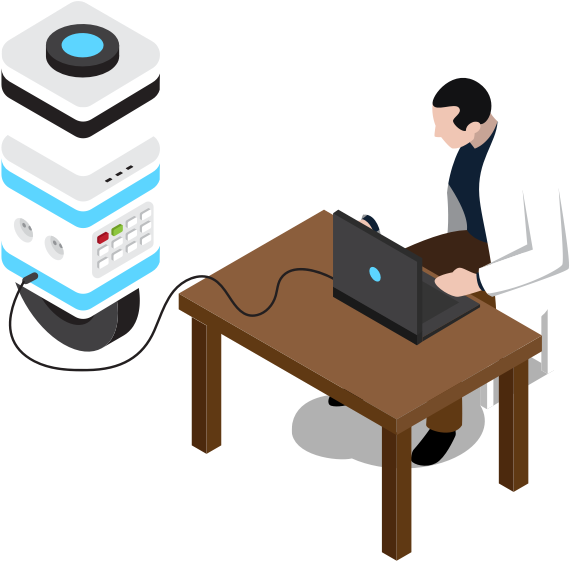
Millennial parents’ trust of doctors using AI data for life-and-death decisions related to their kids is generally stronger than their trust as it relates to their own mothers and fathers.

Because AI can continuously monitor a person's many physiological characteristics, not only will it be able to provide personalized health care for that specific person, but also take action in life-or-death situations.
Shervin Shirmohammadi
IEEE Fellow and Professor in the School of Electrical Engineering and Computer Science, University of Ottawa (Canada)
“Because AI can continuously monitor a person's many physiological characteristics, not only will it be able to provide personalized health care for that specific person, but also take action in life-or-death situations. For example, it can detect if the person's heart rate is irregular or unusually changing for that specific person, and alert them to seek medical attention. One example is where a man's Apple Watch detected an unusual heart rate increase, and alerted him to go to emergency room, where he was diagnosed with pulmonary embolism: a potentially fatal situation had he waited longer.”
Read More About AI and Decision Making:
Millennial Parents Prefer AI, Not Kids, for Care During Golden Years

Millennial parents don’t envision relying on their children during their golden years. Instead, they see artificial intelligence helping them live independently, especially in India and China.

Self-driving vehicles will allow those who do not own a car or can no longer drive, to call upon AI controlled self-driving cars.
Karen Panetta
IEEE Fellow and Dean of Graduate Engineering, Tufts University (U.S.)
“AI is already supporting our households through temperature control, real-time monitoring, and controlling our consumer devices by simply asking our AI assistant to perform a specific command. In the future, your smart refrigerator may know you are out of milk and bread and create a shopping list and automatically have it delivered. We know that self-driving vehicles will allow those who do not own a car or can no longer drive, to call upon AI controlled self-driving cars. For most elderly, these rides are essential to getting to medical appointments or to get food.”
Read More About How AI Can Care for the Elderly:
Real-Time AI Health Monitoring and Tracking Will be Routine as Millennials Age

Looking into the future toward their golden years, Millennials across the globe are confident AI will provide them with real-time, round-the-clock health monitoring, reminders and advice.

Even readings such as heart rate, body temperature, or step count, which traditionally required a wearable device, can now be done through a camera at home.
Shervin Shirmohammadi
IEEE Fellow and Professor in the School of Electrical Engineering and Computer Science, University of Ottawa (Canada)
“Cameras installed in a person's smart home can detect the person falling and not being able to get up, what the person is eating – which is important for dietary management – if the person has taken their medicine, if the person has sufficient physical activity per day, whether a door needs to be opened or closed as the person is moving with the help of a walker or a wheelchair, detecting fire or water leak, calling for help when necessary, etc. Even readings such as heart rate, body temperature, or step count, which traditionally required a wearable device, can now be done through a camera at home.”
Millennials See Cancer Eradicated in Generation Alpha’s Lifetime, Thanks to AI

Given the accuracy of AI technologies in diagnosing cancer, a strong majority of Millennial parents in China, India and Brazil think the disease will be eradicated during their children’s lifetime, while those in the U.S. and U.K. are split on this potential outcome.

As the amount of data on illnesses grows, [AI] will increasingly be able to detect cancers and perhaps even precursors to cancers.
Tom Coughlin
IEEE Fellow and President at Coughlin Associates (U.S.)
“AI can be trained to make diagnoses that rival or exceed human doctors in many instances. As the amount of data on illnesses grows, they will increasingly be able to detect cancers and perhaps even precursors to cancers. The latter feature, combined with regular monitoring via sensors, may allow treatments that can reverse a cancer before it can start.”
“Generation AI 2018: Second Annual Study of Millennial Parents of Generation Alpha Kids” surveyed 2,000 parents, aged 20–36 years-old, with at least one child eight years old or younger — 400 each in the United States, United Kingdom, India, China and Brazil. The surveys were conducted May 17-23, 2018.





